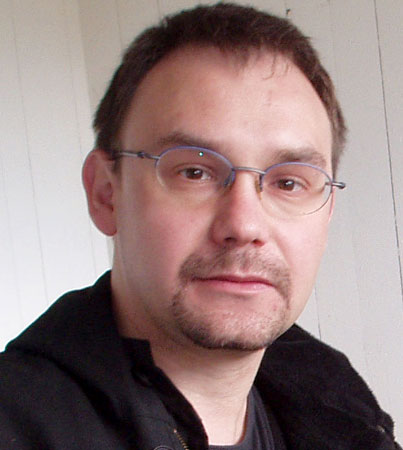Dmitry Golynko Conversation

In this program, recorded on the 20th anniversary of the fall of the Berlin Wall, poet Dmitry Golynko talks about the influence of post-Cold War culture on his work. Golynko views that event as "a historic moment encompassing the highpoint of the heat of catastrophic socio-political changes, as well as a melting-pot moment characterized by a huge influx of novel cultural influences and vast amounts of knowledge that had been kept in secret by official party censorship in the previous epoch." However, he's quick to note that "this doesn't mean that the state of war and emergency was banished from post-Soviet cultural process. Quite the opposite is true: language itself turned out to be a battlefield where a fierce contest between controversial layers of everyday speech resulted in the effect of immersion in incessant warfare." This leads to questions about the political stance of the poet's work, as well as the evolving gender-consciousness that's present there.
Golynko, born in 1969 in Leningrad, is a poet, literary and art critic and a scholar of history and cultural theory. He currently works as a researcher at the Russian Institute of Art History in Saint Petersburg, where he has continued to live. Golynko is the author of three books of poetry, Homo Scribens (Borey-Art, 1994), Directory (Argo-Risk, 2001), and Concrete Doves (New Literary Review, 2003) (40 minutes).
RELATED PROGRAMS

Close Listening
RADIO SERIES
Conversations and readings with poets and artists, produced in cooperation with PennSound and hosted by Charles Bernstein, the American poet, theorist, editor, and literary scholar. Bernstein was born in New York City in 1950. He is a foundational member and leading practitioner of Language poetry. Bernstein was educated at the Bronx High School of Science and at Harvard University, where he studied philosophy with Stanley Cavell and wrote his final thesis on Gertrude Stein and Ludwig Wittgenstein.
In the mid-1970s Bernstein became active in the experimental poetry scenes in New York and San Francisco, not only as a poet, but also as an editor, publisher, and theorist. With visual artist and wife Susan Bee, Bernstein published several now well-known poets whose work is associated with Language writing.
more In the mid-1970s Bernstein became active in the experimental poetry scenes in New York and San Francisco, not only as a poet, but also as an editor, publisher, and theorist. With visual artist and wife Susan Bee, Bernstein published several now well-known poets whose work is associated with Language writing.






